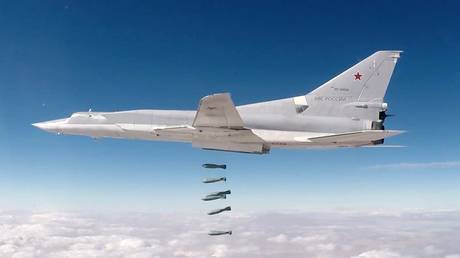ARTICLE AD BOX

JERUSALEM — The Israeli government said a drone was launched toward the prime minister’s house Saturday, with no casualties, as Iran’s supreme leader vowed that Hamas would continue its fight against Israel following the killing of the mastermind of last year’s deadly Oct. 7 attack.
Sirens wailed Saturday morning in Israel, warning of incoming fire from Lebanon, including a drone launched toward Israeli Prime Minister Benjamin Netanyahu’s house in Caesarea, the Israeli government said. Neither he nor his wife were home and there were no casualties, said his spokesperson in a statement.
[time-brightcove not-tgx=”true”]Meanwhile, in Gaza, more than 50 people, including children, have been killed in several Israeli strikes, in less than 24 hours, according to hospital officials and an Associated Press reporter.
In September, Yemen’s Houthi rebels launched a ballistic missile toward Ben Gurion Airport when Netanyahu’s plane was landing. The missile was intercepted.
Barrages from Lebanon target northern Israel
In addition to the drone launched at Netanyahu’s residence, Israel’s military said some 55 projectiles were fired in two separate barrages at northern Israel from Lebanon on Saturday morning. Four people were injured, one of who had moderate wounds from falling shrapnel, said Israel’s medical services.
Israel’s emergency services said a 50-year-old man was killed after being hit by shrapnel while sitting in his car in northern Israel. In a separate statement, the emergency services said four people were injured from the strikes. It was unclear if the man killed was one of the injured.
Israel’s war with Lebanon’s Hezbollah — a Hamas ally backed by Iran — has intensified in recent weeks. Hezbollah said Friday that it planned to launch a new phase of fighting by sending more guided missiles and exploding drones into Israel. The militant group’s longtime leader, Hassan Nasrallah, was killed in an Israeli airstrike in late September, and Israel sent ground troops into Lebanon earlier in October.
Israel also said Saturday it killed Hezbollah’s deputy commander in the southern town of Bint Jbeil. The army said Nasser Rashid supervised attacks against Israel
In Lebanon, the health ministry said an Israeli airstrike Saturday hit a vehicle on a main highway north of Beirut, killing two people. It was unclear who was in the car when it was struck.
Israeli strikes pound Gaza as Hamas rejects hostage release
A standoff is also ensuing between Israel and Hamas, which it’s fighting in Gaza, with both signaling resistance to ending the war after the death of Hamas’ leader Yahya Sinwar this week. On Friday, Iran’s supreme leader, Ayatollah Ali Khamenei, said Sinwar’s death was a painful loss but noted that Hamas carried on despite the killings of other Palestinian militant leaders before him.
“Hamas is alive and will stay alive,” Khamenei said.
Since Israel claimed Sinwar’s death Thursday, confirmed by a top Hamas official Friday, Hamas has reiterated its stance that the hostages taken from Israel a year ago will not be released until there is a cease-fire in Gaza and a withdrawal of Israeli troops. The staunch position pushed back against a statement by Netanyahu that his country’s military will keep fighting until the hostages are released, and will remain in Gaza to prevent a severely weakened Hamas from rearming.
Sinwar was the chief architect of the 2023 Hamas raid on Israel that killed some 1,200 people, mostly civilians, and kidnapped another 250. Israel’s retaliatory offensive in Gaza has killed over 42,000 Palestinians, according to local health authorities, who do not distinguish combatants from civilians but say more than half the dead are women and children.
More strikes pounded Gaza on Saturday. The Palestinian Health Ministry said in a statement that Israeli strikes hit the upper floors of the Indonesian Hospital in Beit Lahiya, and that forces opened fire at the hospital’s building and its courtyard, causing panic among patients and medical staff.
At Al-Awda hospital in Jabaliya, in northern Gaza, strikes hit the building’s top floors, injuring several staff members, the hospital said in a statement. Three houses in Jabaliya were struck overnight Friday, killing at least 30 people, more than half of them women and children, said Fares Abu Hamza, head of the health ministry’s ambulance and emergency service. At least 80 people were injured.
In central Gaza, at least 10 people were killed, including two children, when a house was hit in the town of Zawayda, according to the al-Aqsa Martyrs Hospital in Deir al-Balah, where the casualties were taken. Another strike killed 11 people, all from the same family, in the Maghazi refugee camp, the same hospital said. Associated Press journalists counted the bodies from both strikes at the hospital.
The strikes knocked out internet networks in northern Gaza, said Paltel, the Palestinian communications company, on Facebook Saturday.
The war has destroyed vast swaths of Gaza, displaced about 90% of its population of 2.3 million people, and left them struggling to find food, water, medicine and fuel.
Opportunity in Sinwar’s death
Sinwar’s killing appeared to be a chance front-line encounter with Israeli troops on Wednesday, and it could shift the dynamics of the war in Gaza even as Israel presses its offensive against Hezbollah with ground troops in southern Lebanon and airstrikes in other areas of the country.
Israel has pledged to destroy Hamas politically in Gaza, and killing Sinwar was a top military priority. But Netanyahu said in a speech Thursday announcing the killing that “our war is not yet ended.”
Still, the governments of Israel’s allies and exhausted residents of Gaza expressed hope that Sinwar’s death would pave the way for an end to the fighting.
In Israel, families of hostages still held in Gaza demanded the Israeli government use Sinwar’s killing as a way to restart negotiations to bring home their loved ones. There are about 100 hostages remaining in Gaza, at least 30 of whom Israel says are dead.
.png)
 1 month ago
1
1 month ago
1








 English (US)
English (US)